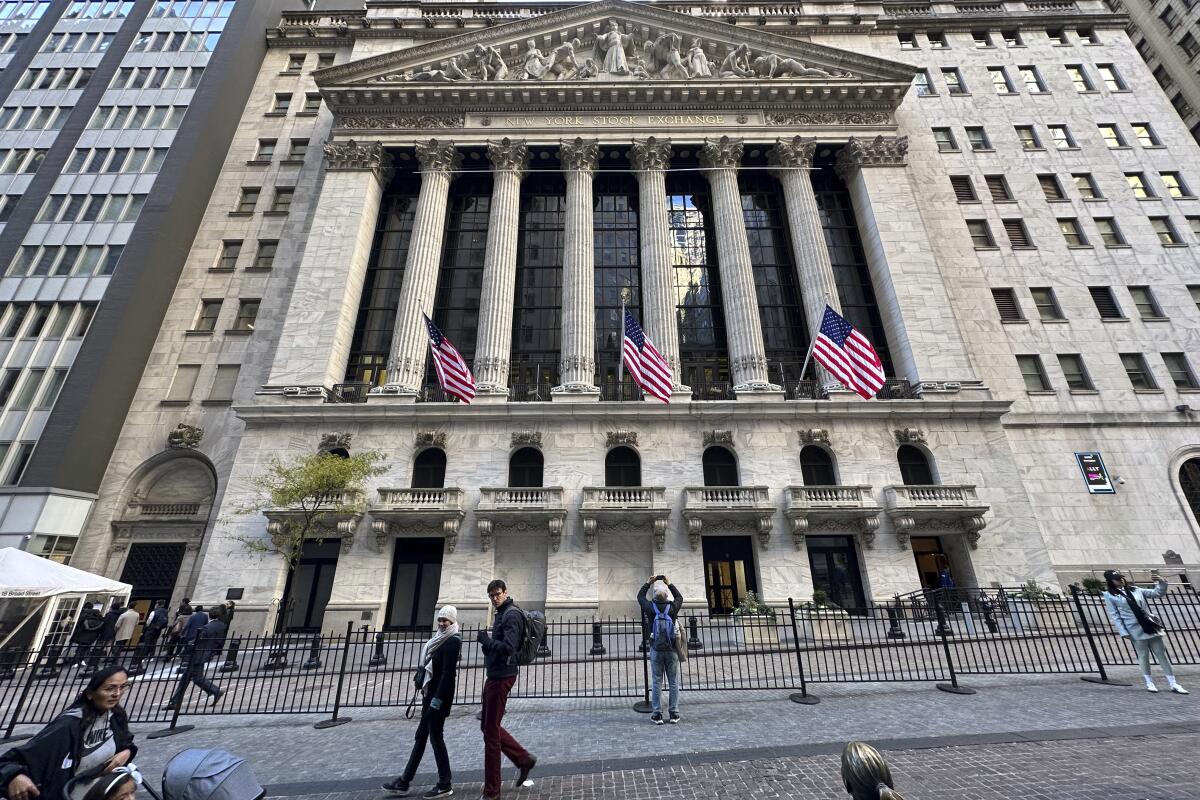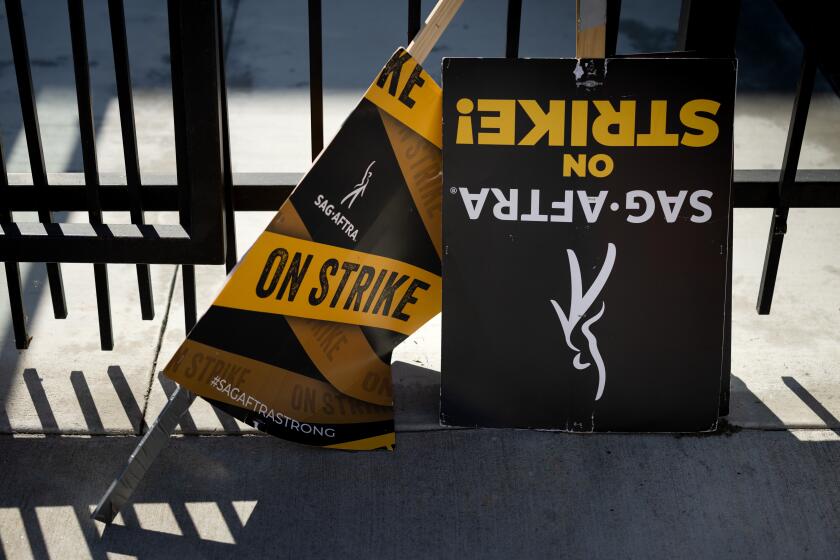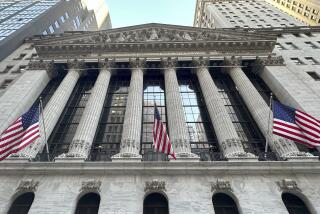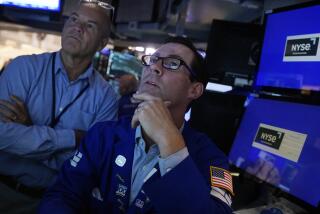Wall Street drifts ahead of reports on inflation and big retailers’ profits

Wall Street drifted through a mixed Monday to open a week that could bring more action to financial markets, with several big reports on the calendar.
The Standard & Poor’s 500 slipped 3.69 points, or 0.1%, to 4,411.55. The Dow Jones industrial average rose 54.77 points, or 0.2%, to 34,337.87, and the Nasdaq composite fell 30.36 points, or 0.2%, to 13,767.74.
The market is coming off a week with relatively few data reports to give hints on Wall Street’s central questions: When will the Federal Reserve stop raising interest rates and begin cutting them, and can the economy stay as resilient as it has? But this upcoming week will offer more, including the latest monthly update on inflation and earnings reports from some of the nation’s biggest retailers.
The profit reporting season for the summer is winding down, and the majority of companies have again topped analysts’ expectations. Henry Schein became the latest to beat Wall Street’s forecasts, and the provider of healthcare products rose 5.4%.
Tyson Foods’ results also topped expectations for adjusted earnings, and its stock fell 2.8% after it warned about potentially more challenging times ahead. The meat company said it could see zero growth in its overall revenue this upcoming fiscal year.
The SAG-AFTRA board has approved a landmark deal to end the union’s strike. The vote clears the way for guild members to approve or reject the contract.
Later this week, Target, TJX and Walmart will report their own results, and more attention may be on what they say about upcoming trends than about the summer.
The economy has remained strong recently, even though the Federal Reserve has raised its main interest rate to its highest level since 2001 in hopes of stamping out high inflation. But worries remain about whether it can stay that solid as the full effects of all the rate hikes make their way through the system.
That’s why so much attention will be on Tuesday’s inflation report. The hope is that inflation will continue to cool from its peak in the summer of 2022, when it topped 9%, and convince the Federal Reserve that no more rate increases are necessary.
Economists expect the report to show that consumers paid prices that were 3.3% higher in October than a year earlier, down from September’s inflation rate of 3.7%.
Health savings accounts can be tapped by a surviving spouse. For other beneficiaries, the tax benefits go away.
With inflation generally cooling, Federal Reserve Chair Jerome H. Powell gave some hope recently that the rise in longer-term Treasury yields could act as substitutes for further rate hikes, which could mean the Fed may be done with them. But Powell said last week that the Fed would not hesitate to raise rates again if needed.
In the bond market, the yield on the 10-year Treasury dipped to 4.62% from 4.63% late Friday. It’s come down over the last month on hopes the Fed may be done with its rate hikes, but it’s still well above where it’s been for years.
High rates and yields weigh on all kinds of investments, and they tend to hit technology and other high-growth companies particularly hard. That had Big Tech stocks as the heaviest weights on the S&P 500, including a 0.9% slip for Apple and 0.8% drop for Microsoft.
Those two, along with five other Big Tech stocks that make up what’s called the “Magnificent Seven,” have been disproportionately responsible for most of this year’s gains for the S&P 500.
“Such weak price breadth is not indicative of a healthy bull market, in our view, and accurately reflects the challenging earnings dynamics occurring under the surface of the market,” according to strategists at Morgan Stanley led by Michael Wilson.
He sees the challenge continuing into early 2024 before a sustainable profit recovery could take hold.
More shakiness could be ahead if investors worry about a couple of challenges facing the Treasury market, said Chris Larkin, managing director at E-Trade from Morgan Stanley.
Less than half of large employers currently cover the new generation of obesity drugs, but an additional 18% say they’re considering adding them amid surging interest.
The credit-rating agency Moody’s said late Friday that it may downgrade the top-tier AAA rating it has for U.S. government debt given the cost of rising interest rates and political polarization in Congress.
The latter has been playing out in yet another showdown that could result in a U.S. government shutdown.
Although a shutdown by the government or a cutting of a credit-rating agency’s outlook probably wouldn’t trigger big moves by themselves, general worries about big spending deficits by Washington, and the inability in Congress to work together to solve many issues, have been behind some of the recent runs higher in Treasury yields.
In stock markets abroad, Chinese indexes were higher after Alibaba Group Holding and JD.com reported a pickup in sales for this year’s Singles’ Day shopping festival. Like other Chinese companies, they’re grappling with a stop-start recovery in the world’s second-largest economy.
On Wednesday, China’s leader, Xi Jinping, is set to meet with President Biden on the sidelines of a Pacific Rim summit in California. It will be the first face-to-face encounter in a year between the leaders of the world’s two biggest economies.
Stock indexes were mostly higher across the rest of Asia and Europe.
AP writers Zimo Zhong and Matt Ott contributed to this report.
More to Read
Inside the business of entertainment
The Wide Shot brings you news, analysis and insights on everything from streaming wars to production — and what it all means for the future.
You may occasionally receive promotional content from the Los Angeles Times.













